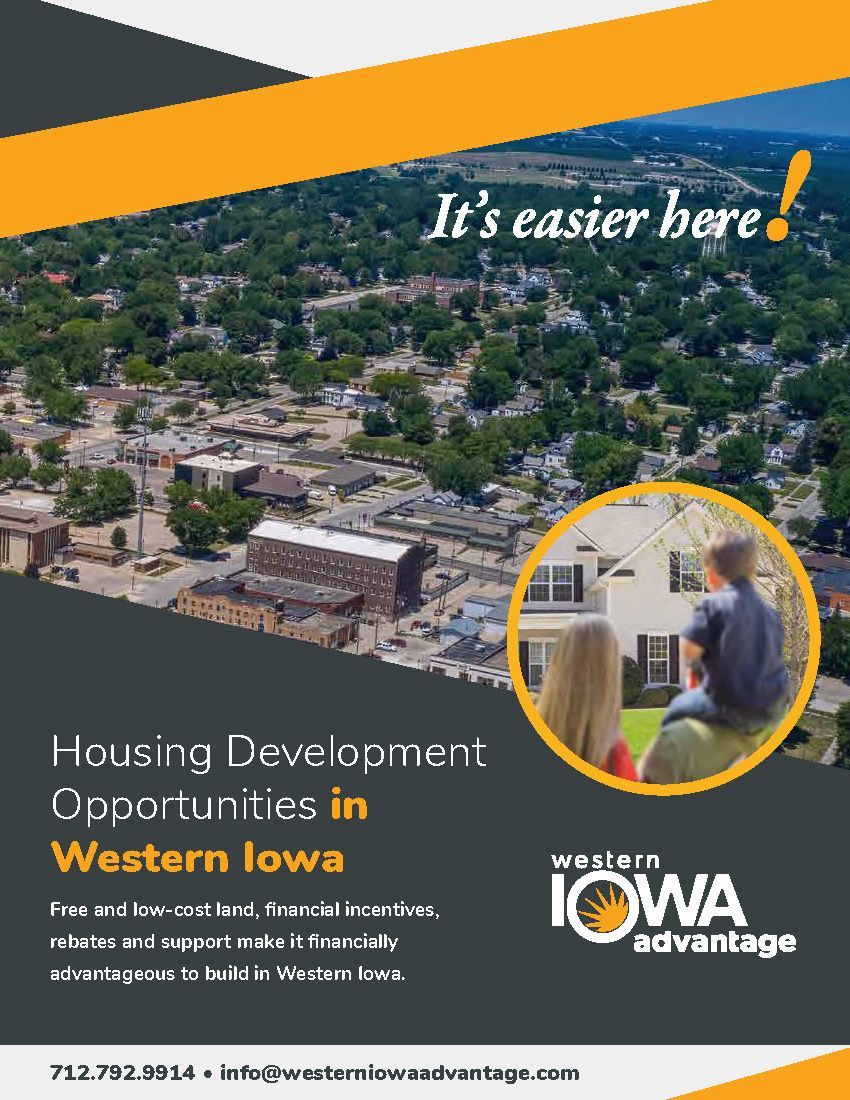REGIONAL CONVENER
Councils of Governments (COGs) lead collaborative efforts to tackle regional challenges. They have taken a proactive role in addressing significant regional issues by convening a diverse group of stakeholders.
Bi-State Regional Commission
Leading Solid Waste Management Efforts
Since the late 1980s, the Bi-State Regional Commission (BSRC) has been at the forefront of solid waste management in the region. Initially, BSRC brought together local jurisdictions in Scott and Rock Island Counties to form two multi-jurisdictional solid waste organizations in response to new regulations aimed at diverting waste from landfills. BSRC secured the necessary grants and managed the consultant contract that explored waste management options across two counties in Illinois and five counties in Iowa, ultimately developing the founding agreements for the two solid waste organizations that continue to operate today.
One of these organizations benefits from BSRC's staffing, which helps reduce costs by eliminating the need for a full-time director. Today, BSRC remains actively involved by facilitating and writing the required periodic plan updates on solid waste activities for each state. Additionally, BSRC convenes the Bi-State Waste Coalition to address common waste issues in the region. A notable joint activity of the Coalition is the annual Xstream Cleanup, which partners with other organizations to remove trash from local waterways.
BSRC's ongoing efforts demonstrate its commitment to effective waste management and regional collaboration, ensuring a cleaner and more sustainable environment for all residents.
East Central Intergovernmental Association
Tackling Housing Challenges with Comprehensive Initiatives
The East Central Intergovernmental Association (ECIA) is addressing housing issues in the region, focusing on lead-based paint contamination and health concerns like moisture and mold. These problems threaten habitability and worsen the affordable housing crisis.
In partnership with Cedar, Clinton, Delaware, Dubuque, Jackson, Jones, and Scott counties, along with the cities of Clinton and Maquoketa, ECIA has secured funding from HUD programs such as Lead Hazard Reduction, Healthy Homes Production, and Older Adult Home Modification. These funds will improve housing, targeting lead contamination in 215 units, health and safety issues in 92 units, and safety upgrades for seniors in 150 units.
ECIA is educating stakeholders on the importance of these improvements and securing 10% of improvement costs from each entity. It manages grant writing, project administration, inspections, and contractor hiring.
Through these comprehensive initiatives, ECIA is demonstrating its commitment to creating safer, healthier, and more affordable housing for all residents in the region.
Iowa Northland Regional Council of Governments
Reducing Landfill Waste and Building Partnership
The Iowa Waste Exchange (IWE), a program through the Iowa DNR and contracted directly to the Region XII Council of Governments, utilizes staff members from three Councils of Governments (Region XII, ECICOG, and INRCOG) to reduce landfill waste across the state. INRCOG serves as the host site for Region 3, which spans 28 counties from northeast to southern Iowa. The IWE is a free, non-regulatory, and confidential service that connects organizations generating byproducts—like manufacturing scraps or expired goods—with others that can reuse or recycle them, thus preventing these byproducts from entering the landfill.
In the first half of this fiscal year, Region 3 made 566 contacts, facilitated 15 successful matches, and diverted over 4,700 tons of material from landfills—saving more than $257,000 in disposal costs. INRCOG also conducts waste audits and assists with grant applications for programs like SWAP and the Derelict Building Grant.
Through these efforts, INRCOG is helping reduce environmental impact, cut costs, and build stronger cross-sector partnerships.
Metropolitan Area Planning Agency
Supporting Rural Growth Amidst Metropolitan Expansion
As the Omaha-Council Bluffs metropolitan area surpasses one million residents, planning for rural growth has become increasingly critical. The Metropolitan Area Planning Agency (MAPA) is addressing these emerging issues by leveraging its resources to support collaborative regional solutions.
Over the past year, MAPA has engaged a bi-state coalition of community leaders and economic development professionals from Mills County, Iowa, and Cass County, Nebraska. This initiative aligns with MAPA’s Comprehensive Economic Development Strategy (CEDS) goals to retain, expand, and attract businesses throughout the region, while enhancing the capacity of local governments, particularly in rural communities.
MAPA provided technical assistance for a joint USDA-RD Rural Business Development Grant application for Glenwood, Iowa, and Plattsmouth, Nebraska. If funded, MAPA will partner with Retail Strategies, LLC, to implement their Retail Academy training program, promoting commercial growth and sustainability.
MAPA's efforts highlight its commitment to fostering economic development and supporting rural areas amidst metropolitan expansion.
North Iowa Area Council of Governments
Hosting Inaugural North Iowa Housing Conference
The North Iowa Area Council of Governments (NIACOG) is excited to host the inaugural North Iowa Housing Conference on April 24, 2025. This one-day event aims to tackle housing challenges and contractor capacity issues by connecting communities with developers, financial resources, and training opportunities to enhance housing availability.
The conference will feature 30 speakers across three tracks, covering topics such as housing development resources, construction contractor challenges, and social services in North Iowa, including home repair funding and homelessness support. Keynote speaker Debi Durham will headline the event, which will also include a Business After Hours session with entertainment, axe throwing, and appetizers at Mason City's unique venue, 'The Music Man Square,' known for its downtown streetscape and Grammy museum.
A dedicated planning team of 25 members from local organizations, along with the North Iowa Builders Exchange, played a crucial role in organizing the event. NIACOG facilitated the planning, coordinated sponsorships, speakers, and venue details, and served as the fiscal agent.
Join them for a day of insightful discussions and networking opportunities to help improve housing in North Iowa.

Region XII Council of Governments
Housing Marketing Brochure Attracts Developer Interest
Western Iowa Advantage (WIAD), a collaborative effort managed by the Region XII Council of Governments, is effectively marketing the economic assets of a seven-county region in Western Iowa. To attract developers, WIAD created a comprehensive housing marketing program, culminating in the "Housing Development Opportunities In Western Iowa" brochure, finalized in summer 2024.
The brochure has already shown promising results, generating four inquiries about potential development projects, three of which came from outside the seven-county region. "The inquiries were shocked at the opportunities available in these rural communities," said Sara Slater, Audubon County Economic Development Director and WIAD partner. "This brochure is truly a fantastic example of excellent marketing."
WIAD's initiative, supported by Region XII, demonstrates the power of strategic marketing in highlighting the potential of rural areas and attracting new development opportunities.

Siouxland Interstate Metropolitan Planning Council
Preventing Removal of Navigation Aids on Missouri River
The Siouxland Interstate Metropolitan Planning Council (SIMPCO) recently tackled a critical issue regarding the proposed removal of 36 Aids to Navigation (ATON) on the Missouri River, spanning from Blencoe, Iowa, to Sioux City, Iowa. This potential removal, brought to attention by Congressman Randy Feenstra’s office, threatened future navigation on the river, which is essential for barge traffic and the regional economy. The removal would have severely impacted Siouxland businesses by limiting transportation options and deterring future investments.
In response, SIMPCO collaborated with key partners, including the SIMPCO Water Resource Committee, Siouxland Chamber of Commerce, City of Sioux City, New Cooperative, Coalition to Protect the Missouri River, Iowa DOT, State Steel, U.S. Senator Joni Ernst, and U.S. Congressman Randy Feenstra. Their collective efforts successfully persuaded the U.S. Coast Guard to retain the ATON.
SIMPCO played a pivotal role by providing a letter of support, participating in stakeholder meetings, and raising awareness among members and stakeholders. This effort highlights SIMPCO's commitment to protecting the region's transportation infrastructure and supporting the local economy.
Southeast Iowa Regional Planning Commission
Addressing Natural Gas Shortage to Attract Major Investments
In 2020, Southeast Iowa faced a significant challenge when a biodiesel manufacturer sought to invest $600 million and create 250 jobs in the region. The problem? The region had only one-third of the necessary natural gas supply. Despite efforts to secure additional gas over the following year, the company ultimately chose another site with adequate resources. This scenario repeated three more times, costing the region $1.5 billion in potential investments and 1,000 jobs.
In response, the Southeast Iowa Regional Planning Commission (SEIRPC) organized a study in 2022 to explore solutions. Collaborating with local economic developers and raising funds, the study revealed that three nearby east-west gas transmission lines had surplus capacity. However, a new transmission line and distribution infrastructure, estimated to cost $300-400 million, were necessary.
While a solution is not yet in place, SEIRPC and regional partners remain optimistic. They are confident that with ongoing communication and advocacy, a resolution will emerge, paving the way for future investments and economic growth in Southeast Iowa.
Upper Explorerland Regional Planning Commission
Leading Efforts to Address Child Care Challenges
The Upper Explorerland Regional Planning Commission (UERPC) is taking a proactive role as a regional convener to tackle the pressing economic development and workforce challenge of an unsustainable child care system. In collaboration with child care advocates, agencies, economic development representatives, providers, governments, and other stakeholders, UERPC has advanced several child care initiatives in the region.
Key efforts include:
- Assisting with child care research and data collection.
- Disseminating valuable information from statewide partners.
- Implementing community and provider-focused surveys to assess needs.
- Conducting interviews and meetings with child care providers.
- Planning Child Care Lunch and Learns and community forums.
- Attending partner and governmental meetings to discuss child care issues and funding.
- Writing successful child care grants.
- Assisting in the formation of the Allamakee County Child Care Coalition.
- Serving as a key partner in creating the Allamakee County Child Care Solutions Fund.
Through these initiatives, UERPC is making significant strides in improving the child care system, ensuring better support for families and fostering economic growth in the region.
